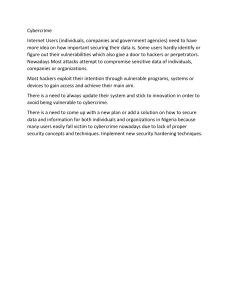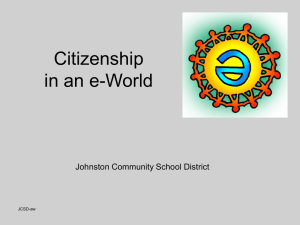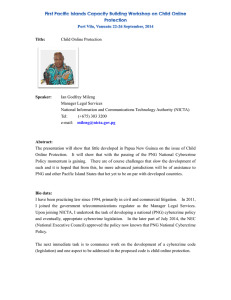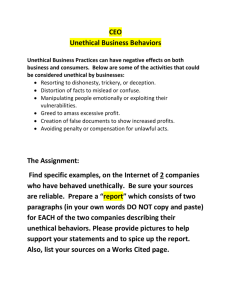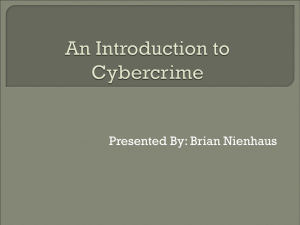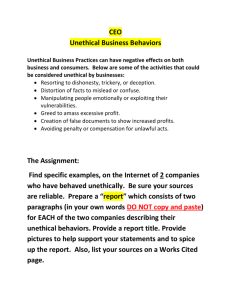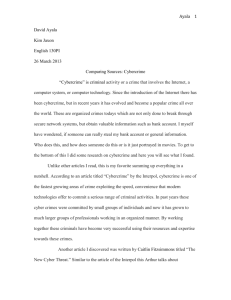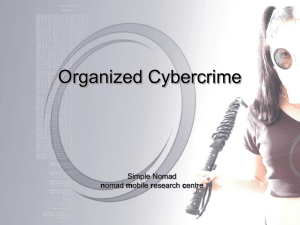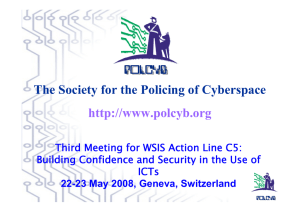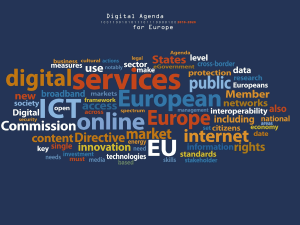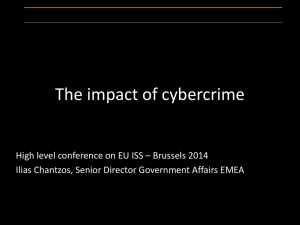Extend 2-1 Cybercrime Paper Draft
advertisement
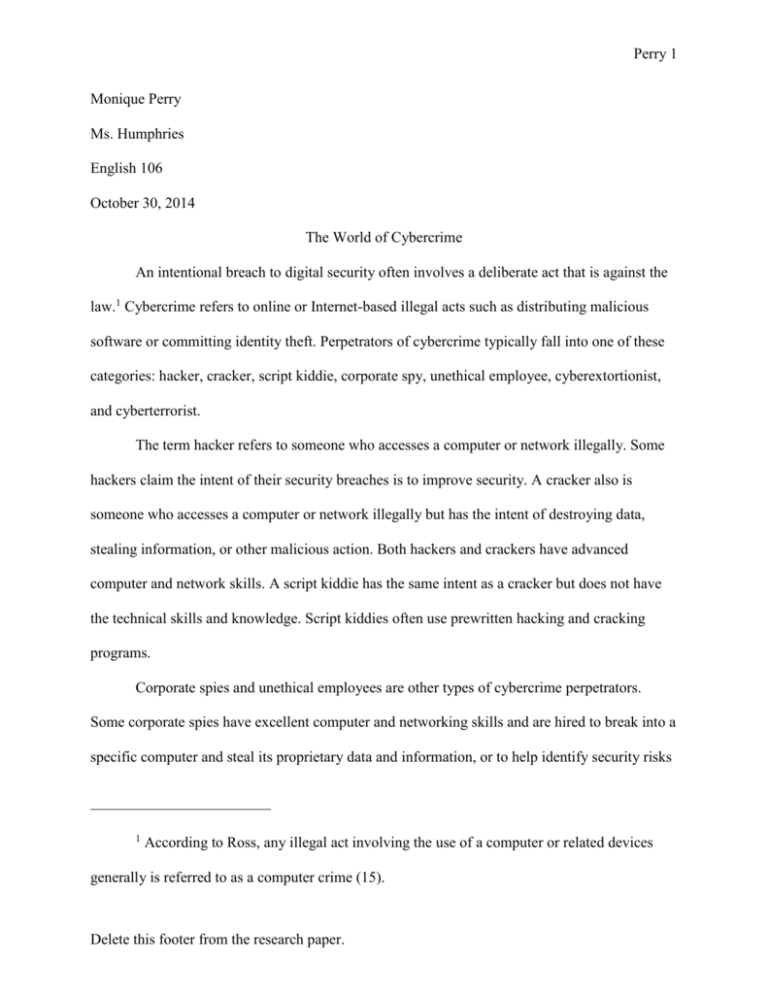
Perry 1 Monique Perry Ms. Humphries English 106 October 30, 2014 The World of Cybercrime An intentional breach to digital security often involves a deliberate act that is against the law.1 Cybercrime refers to online or Internet-based illegal acts such as distributing malicious software or committing identity theft. Perpetrators of cybercrime typically fall into one of these categories: hacker, cracker, script kiddie, corporate spy, unethical employee, cyberextortionist, and cyberterrorist. The term hacker refers to someone who accesses a computer or network illegally. Some hackers claim the intent of their security breaches is to improve security. A cracker also is someone who accesses a computer or network illegally but has the intent of destroying data, stealing information, or other malicious action. Both hackers and crackers have advanced computer and network skills. A script kiddie has the same intent as a cracker but does not have the technical skills and knowledge. Script kiddies often use prewritten hacking and cracking programs. Corporate spies and unethical employees are other types of cybercrime perpetrators. Some corporate spies have excellent computer and networking skills and are hired to break into a specific computer and steal its proprietary data and information, or to help identify security risks 1 According to Ross, any illegal act involving the use of a computer or related devices generally is referred to as a computer crime (15). Delete this footer from the research paper. Perry 2 in their own organization. Unethical employees may break into their employers’ computers for a variety of reasons. They may want to exploit a security weakness, receive financial gains from selling confidential information, or even to seek revenge (Gonzalez). A cyberextortionist is someone who demands payment to stop an attack on an organization’s technology infrastructure. For example, these criminals threaten to expose confidential information, exploit a security flaw, or launch an attack that will compromise the organization’s network. A cyberterrorist is someone who uses the Internet or network to destroy or damage computers for political reasons. Cyberwarfare is an attack whose goal ranges from disabling a government’s computer network to crippling a country. Cyberterrorism and cyberwarfare usually require a team of highly skilled individuals, millions of dollars, and several years of planning (Zheng and Rutherford). Cybercrime is a top concern in today’s digital world. Cybercriminals include hackers, crackers, script kiddies, corporate spies, unethical employees, cyberextortionists, and cyberterrorists. Delete this footer from the research paper. Perry 3 Works Cited Gonzalez, Tomas Adrian. "Are You Really Safe?" Tech Security Aug. 2014: n. pag. Web. 17 Sept. 2014. Ross, Jillian Dee. Computer Crimes. Chicago: Color Works Press, 2014. Print. Zheng, Cheng Hu and Karen Lee Rutherford. Hackers and More. Sept. 2014. Course Technology. Web. 25 Sept. 2014. Delete this footer from the research paper.
